PRESERVING A MILITARY LEGACY FOR FUTURE GENERATIONS
The following Reflections represents SGT Thomas Harvey’s legacy of his military service from 1970 to 1973. If you are a Veteran, consider preserving a record of your own military service, including your memories and photographs, on Togetherweserved.com (TWS), the leading archive of living military history. The following Service Reflections is an easy-to-complete self-interview, located on your TWS Military Service Page, which enables you to remember key people and events from your military service and the impact they made on your life. Start recording your own Military Memories HERE.
Please describe who or what influenced your decision to join the Marine Corps?

There were several reasons why I chose military service in general and the Marines in particular. My father was an engineer on a B-29 in WWII. He felt that his military experience was a major turning point in his life. He encouraged me to consider military service and actively lobbied that I should apply to the USMA.
I chose the Marines to make a statement that I supported the Vietnam War. I attended an elite college prep school where it was fashionable to be anti-war and anti-military. I supported America’s role in Vietnam and the worldwide battle against communism. Many members of my mothers family lived under communist oppression in Poland and I felt it was my duty to defend the American way of life. I had heard horror stories as to the break down in the Army and felt that Marine discipline, training, and esprit de corps was superior to all the other armed forces. Also, I felt challenged to do something big and demanding. I could have easily hidden out in college until the war was over but I chose a more difficult route.
Whether you were in the service for several years or as a career, please describe the direction or path you took. What was your reason for leaving?
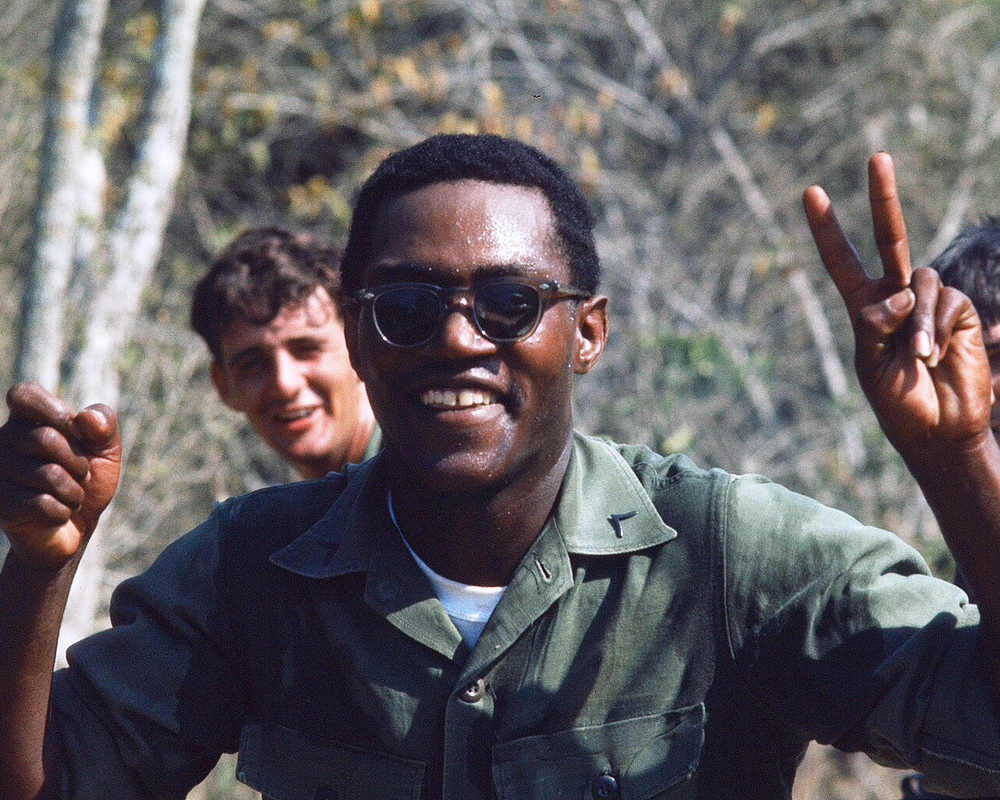
Originally I was considering a career in the Marines. I had enlisted for two years and then extended my enlistment for an additional year. When I extended, my CO said he would recommend me for OCS if I so desired. My goal then was to continue in admin and then apply to Warrant Officer Candidate School when I met the qualifications, which in those days were being a Corporal over five. At that point, things were looking up for me. Midway through my second med cruise, I decided that I wanted to go to college. I applied to the college of my choice and received my acceptance package while on a training op on Corsica with the French Foreign Legion. My reasons for leaving were both positive and negative. On the positive side, I felt I was ready for college. On the negative side, we had a great deal of racial trouble.
I had been assaulted once by a gang of black marines and sailors and on several occasions threatened by similar groups. I felt our recruiting standards had been greatly lowered and that a criminal element had entered the Corps. The top brass was aware of this but due to political correctness did nothing about it. I felt as if I was living in a slum. My last year of service was miserable, especially my second med cruise where we actually encountered a race riot on board my ship, the USS Trenton LSD 34. I thought things would be better in GITMO but along with the racial tension we had a serious drug problem. One evening I had to arrest half my office staff when I caught them smoking pot. After that incident, I received several threats to my safety. When my tour of duty was up I flew back to the states very disillusioned with the entire experience. Within a few days, I was separated from active service and returned home to start a new life.
If you participated in any military operations, including combat, humanitarian and peacekeeping operations, please describe those which made a lasting impact on you and, if life-changing, in what way?
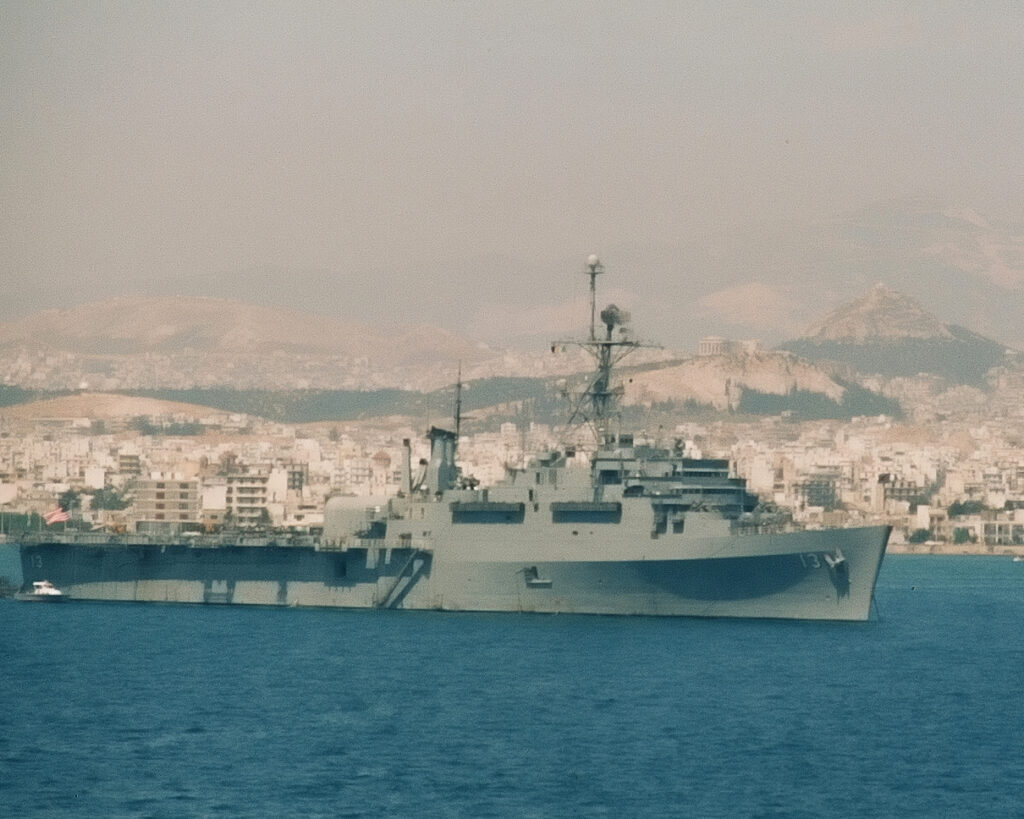
I guess that the only peacekeeping operations I participated in were the Med cruises. I shipped out with BLT’s in April of 1971 and August of 1972. In those days the near east was pretty quiet so from the military point of view, the cruises were uneventful. I think that my happiest time was my first med cruise. I was a young marine, everything was new. I loved shipboard life, travel and see foreign countries. Even though I was in admin I participated in operations on Crete, Greece, and Sardinia. I had great experiences on liberty in ports such as Athens, Naples, and Palma.
Also, I took a six-day leave to Germany. I think that travel changes your life. One realizes that the world is a much bigger place and that although people live differently in most ways we are all very similar.
Of all your duty stations or assignments, which one do you have fondest memories of and why? Which was your least favorite?
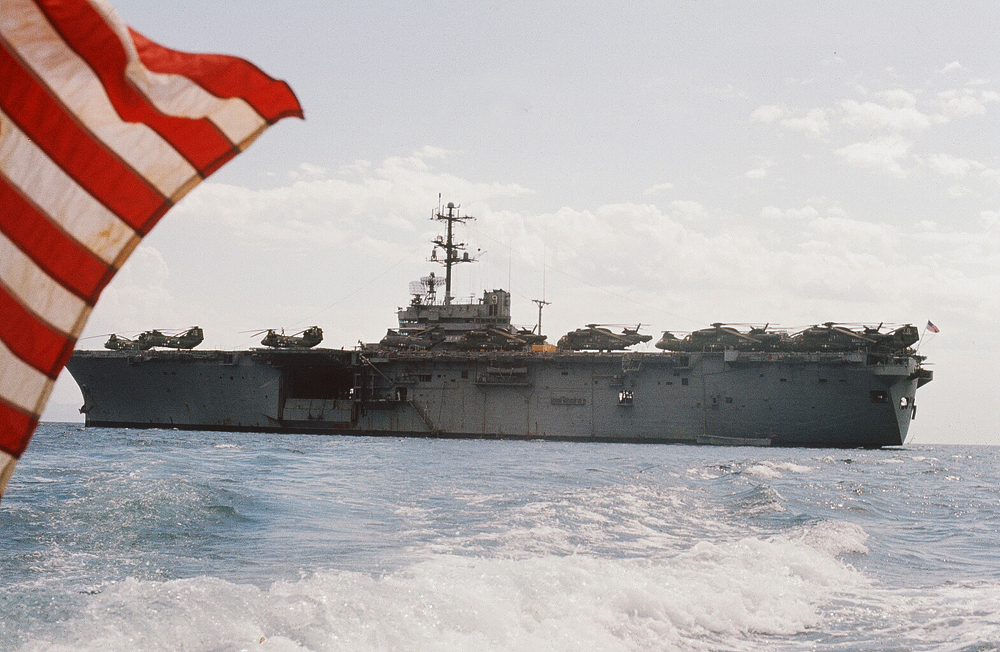
My favorite assignment was my first med cruise on board the USS Guam, LPH9. We had a terrific battalion commander in Lt.Col T.J. Willis, My company, Mike 3/2 was an excellent unit made up of many Vietnam vets and motivated younger Marines. Our CO, Captain. Al Chession was an outstanding young officer. Our morale was high. Being a young marine, everything was new and I was willing to do my share in order to become the best marine possible. I loved it all, the Marines I served with, the field operations, the liberty calls and life at sea.
My second med cruise was my least favorite assignment. It had none of the charms of the first. At that time I had made corporal and my responsibilities had increased. Not only was I a company clerk, but I was also chief radio operator humping an AN/PRC 25 for the old man and while in port a shore patrolman. These duties I liked. What I didn’t like was the racial tension and the subsequent breakdown in discipline and morale. In addition, we had an ineffective battalion commander. While on liberty call in Italy a race riot broke out on board our ship, The USS Trenton, LPD-14 In the subsequent investigation the ship’s Captain and Exec were removed, our battalion commander was removed as was the Sgt. Major. Many officers were reassigned. I didn’t know how in the world we could successfully fight our enemies with so much hate and discontent among ourselves.
Our Regimental commander Col. Taylor flew out from Camp Lejeune and gave us a good ass chewing. Col. Taylor said that we weren’t the best unit he had ever sent out to the med but we were the best he had right now. It reminded me of the statement the Duke of Wellington once said about how he hoped that the enemy was as afraid of his officers as he was. Years later I looked for the USS Trenton on a list of USN ships and didn’t find it. It must have been taken out of service. Good Riddance.
From your entire military service, describe any memories you still reflect back on to this day.
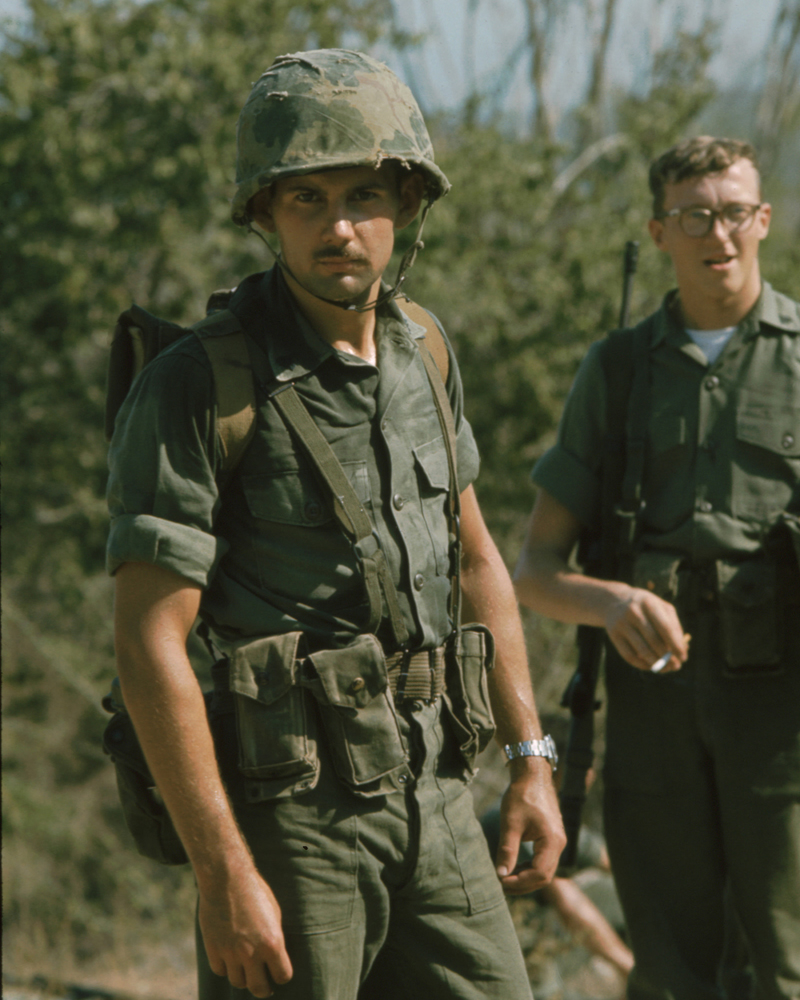
What impacted me the most was learning that the government and military are run by idiots. Oh yes, the guy at the top might be a Harvard grad but the rank and file are morons. Case in point, if it wasn’t for my persistence I would never have been able to join the Corps. Due to a screw-up by my recruiter, I was late to my AFQT in Buffalo. In fifteen minutes I answered correctly 21 of 24 questions in the 100 question test. At that rate, I was on track to get an 87. A solid B+. Some Gunny who barely spoke English said that my scores were to low to join. When I told him that the train was late he didn’t care. I asked for a retest, his answer, no. When I told him my SATs were 1100 he said what’s a SAT.
I then realized I could walk away from the entire thing. The government thought I was too stupid to serve. I went home dejected. Later the head recruiter in Rochester, GySgt Banks said if I wanted to join I could do so as a category 4 but I could only serve two years. He never admitted that it was his man who caused me to be late in the first place. The Category 4 program was a way the military could meet their recruiting goals by signing up the mentally challenged, ie. Forrest Gump. What they didn’t tell you was that Cat 4 meant a 03 MOS and a direct flight to WestPac. The Gunny said don’t worry, they will retest you at PI. After three weeks at PI being called stupid, I learned that my GCT was 123. After that, they stopped calling me stupid.
What achievement(s) are you most proud of from your military career?
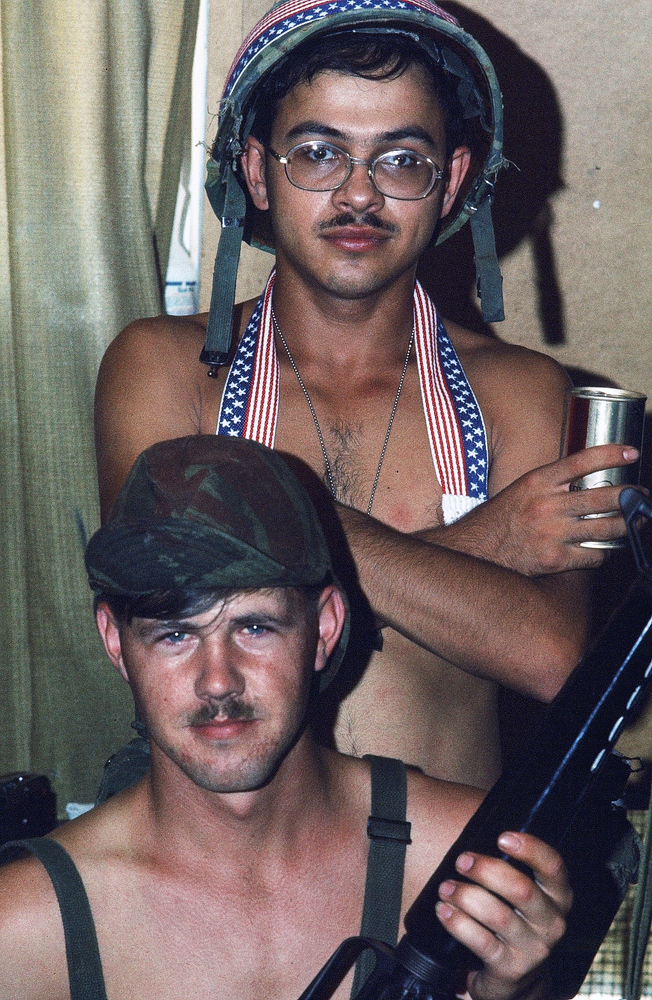
While serving as Admin Chief of H&S Co 2/8 at Camp Buckley, Guantanamo Bay Cuba I was awarded a meritorious mast for my office receiving a noteworthy during our CG inspection. When I was assigned to H&S I found the admin to be very disorganized. There was a high turnover rate in the office and no one knew where all of the 435 marines were. It took me several weeks to find out where everyone was. I used to an infantry company which was much more consolidated. H&S had personnel assigned to the motor pool, NCO club, supply, special services, weapons platoon, etc. After that, I started training my staff. That entailed reviewing their current work and then making improvements. Training needed to be done of SRB’s, Unit Diary, Orders, ID cards and general admin such as leaves, liberty, office hours, re-enlistments and embarkation. The big test was the CG inspection. My office passed with flying colors.
Of all the medals, awards, formal presentations and qualification badges you received, or other memorabilia, which one is the most meaningful to you and why?
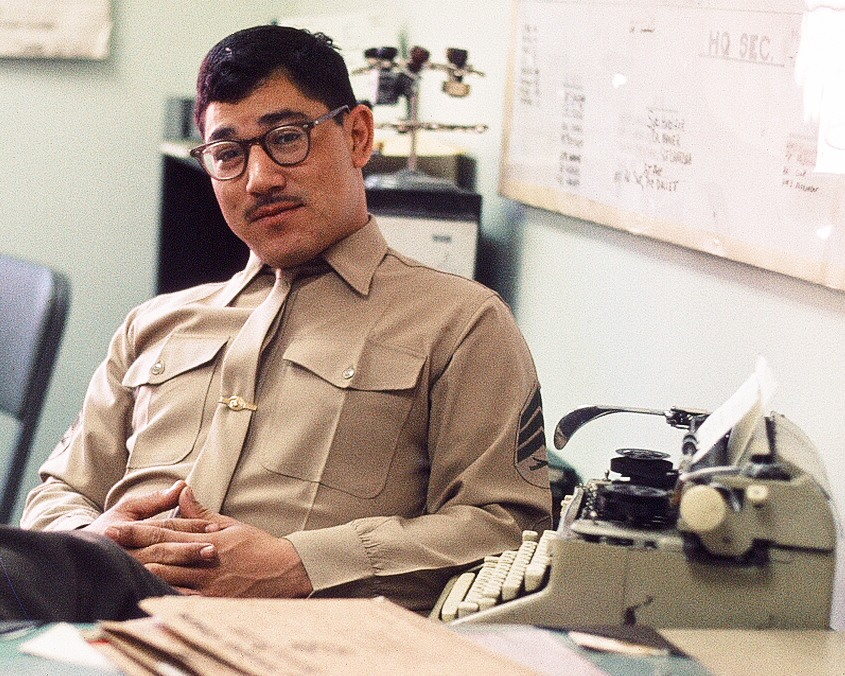
The Meritorious Mast was meaningful to me because it was the result of many hours of training my staff to become competent in all the facets of personnel administration.
Admin is not the most glamorous duty in the Corps but it is essential for the smooth running and morale of the Company.
Which individual(s) from your time in the military stand out as having the most positive impact on you and why?
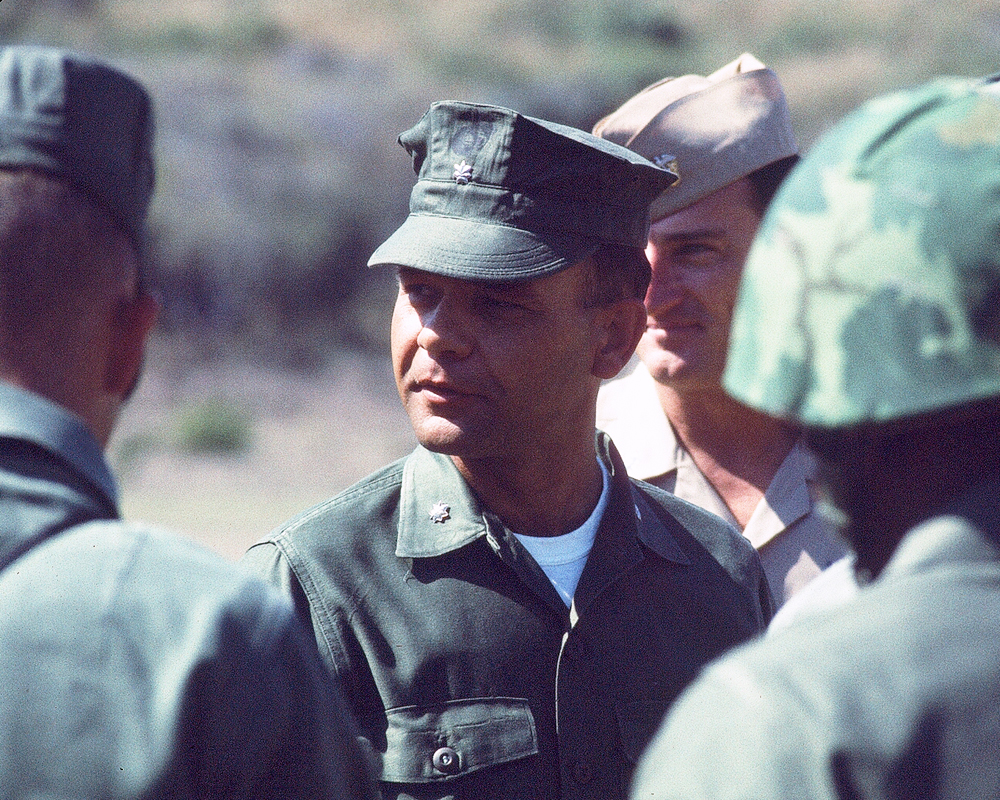
One of my favorite officers was LTCOL James F. (Wild Bill) Cody. Commander of 2/8 at Guantanamo Bay, Cuba. He was an old school marine who had come up through the enlisted ranks. He had fought in WWII, Korea, and Vietnam. What I liked was that he placed a high value on the development of junior NCOs. In those days because of rapid promotions the junior NCO ranks had lost some power and respect. Col. Cody held weekly meetings with his Cpls and Sgts to review training, discipline, and operations issues. Giving the junior NCOs a voice was a win/win. The Col learned about what was going on with the troops and we felt we were part of the team. He supported the NCOs and helped reestablish their lost authority. Because we were in military expedition status he re-instituted old corps traditions such as daily formal guard mounts, Saturday inspections/ parades, and Wednesday marches. I enjoyed serving under his command. What impacted me the most was that there was a man near the end of his career who was still pushing. He demanded excellence but was not nasty about it.
The outgoing SgtMaj thought that LTCOL Cody was the best Battalion commander in the corps and I had to agree.
Can you recount a particular incident from your service which may or may not have been funny at the time but still makes you laugh?
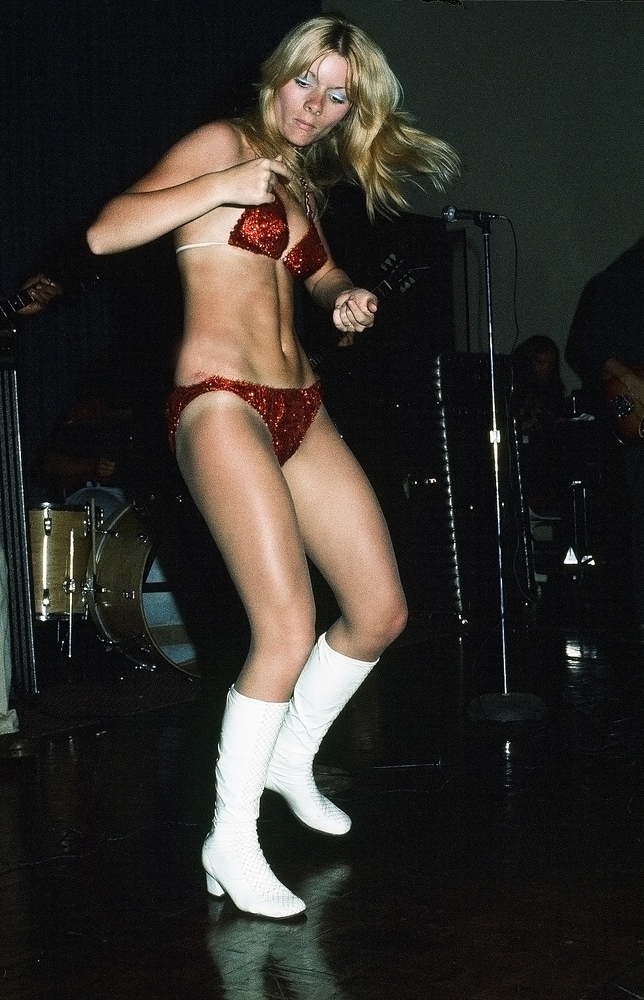
When I was stationed at GITMO as chief clerk of H&S 2/8 there was a rock & roll band playing at the Windjammer Club (NCO club). This band featured a number of go-go dancers. Now at GITMO, there were no available women. One NCO who had something to do with the club said he could get the dancers to meet us at the beach after the show. The beach was off limits after sundown. We all gathered at the beach waiting for the women to show up. After a while, I figured that it wasn’t going to happen so started back to Camp Buckley. At that point, the Shore Patrol showed up and arrested everyone on the beach. I hid under a mangrove tree until the coast was clear. Then I quietly walked back to camp.
The next morning I was ordered to write charge sheets on all the H&S NCO’s who were caught on the beach. They were all lined up in my office as I typed out the charges. If looks could kill. They all knew that I was there with them but no one turned me in. Like I said before, I was awarded a good conduct medal but I should have been written up four or five times.
What profession did you follow after your military service, and what are you doing now?
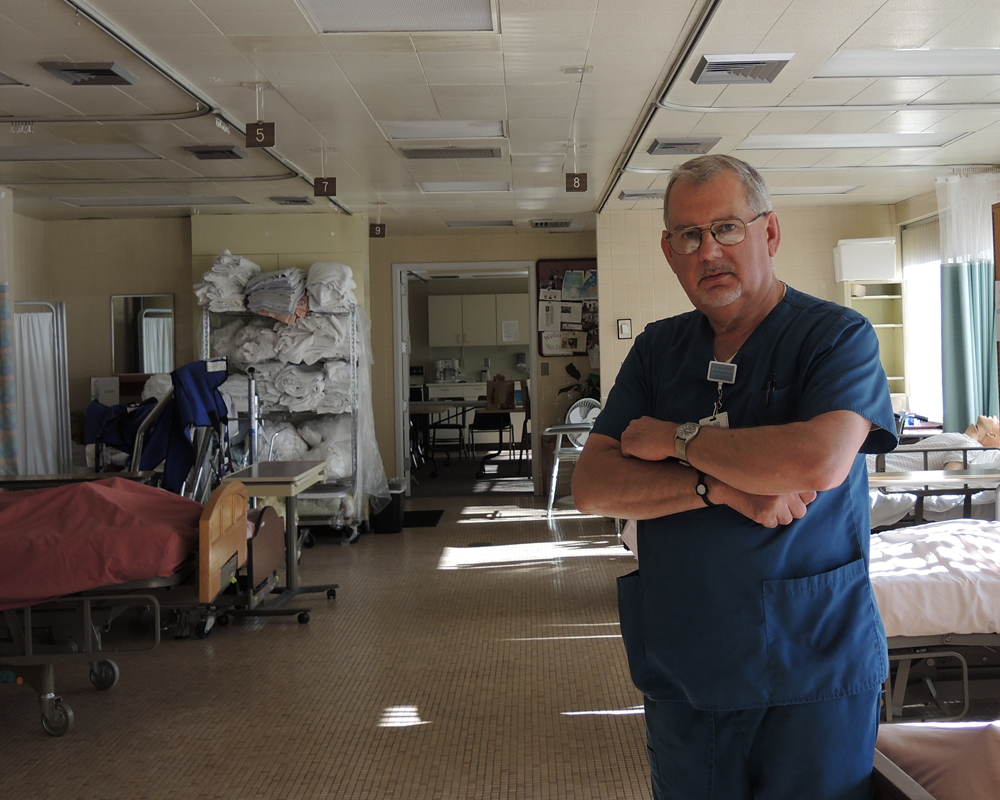
After military service, I attended Rochester Institute of Technology. I was awarded an AAS degree in Professional Photography in 1975. Then I was hired by Eastman Kodak as an industrial photographer. At Kodak I was encouraged to pursue a chemistry degree at the University of Rochester. I didn’t care for chemistry as much as I thought I would so I returned to RIT and earned a BS degree in Photographic Science in 1987. Using that degree I worked as a Photographic Systems Engineer in the Kodak Research Laboratory from 1990-2005.
I left Kodak on early retirement in 2006. In 2008 I started an accelerated nursing program at Unity Health Systems in Rochester NY and was awarded an AAS in Nursing in 2010. I started as a home care nurse in February of 2010 and do so currently.
I am married and have two daughters. My wife is a senior scientist at Johnson and Johnson, one of my daughters is a veterinarian and the other a teacher.
What military associations are you a member of, if any? What specific benefits do you derive from your memberships?
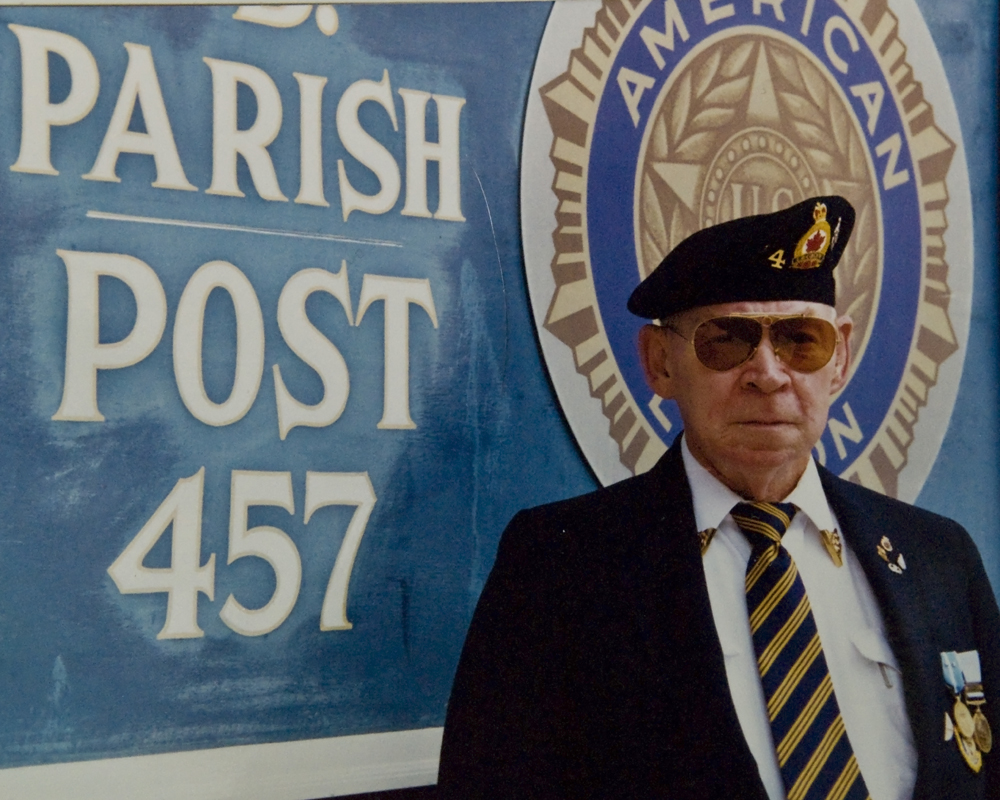
I had a good friend who was a retired USA SSgt. He encouraged me to join the American Legion. I did it to please him. I was a member of the Seeley B. Parish Post 457 in Phelps, New York from 1978-1982. I marched in the color guard for those years. We won some important competitions. I left the post to complete college and pursue other business interests.
I enjoyed the comradeship of the other vets but find military associations unproductive. I don’t spend a lot of time looking backward.
In what ways has serving in the military influenced the way you have approached your life and your career? What do you miss most about your time in the service?
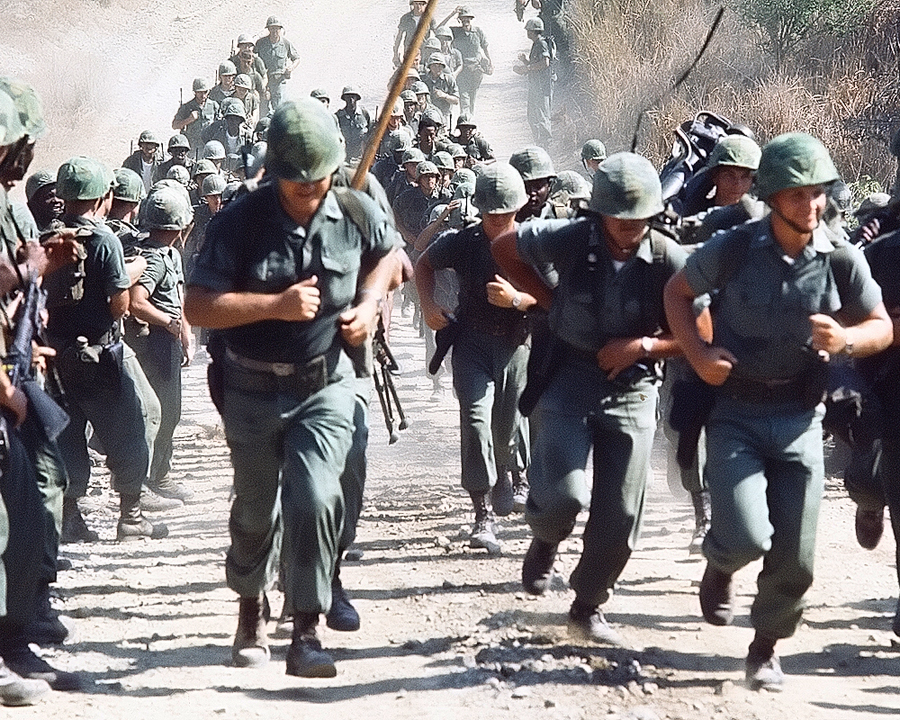
Through military service, I have learned to endure hardship, stay focused on the task at hand, demand excellence from myself and developed a never say die attitude. After the Marines, I enrolled in Rochester Institute of Technology, one of the countries top technical and professional universities. My goal was to graduate with a degree in professional photography and become a pro photographer. This I did in three years in spite of a poor economy and some negativity from friends and family. Later I returned to RIT to pursue a degree in Image Science which I completed in 1987. This degree was obtained at night after a full days work at Eastman Kodak. During this time I had to give up many activities, I enjoyed completing my degree.
Later, when digital imaging replaced film I was forced to take early retirement from Kodak. Upon leaving Kodak I started my own Event Photography business.
Later I returned to college a third time to pursue a nursing degree which I earned in 2010. I work part-time as a visiting nurse and still find time to do professional event photography.
What most influenced me was the concept of mission first. if you want something you make it a goal and focus on its completion. Don’t allow yourself to be distracted. In the civilian world, there is rarely anyone to kick your butt into gear. You must have discipline and for me, that came from the Corps.
Based on your own experiences, what advice would you give to those who have recently joined the Marine Corps?
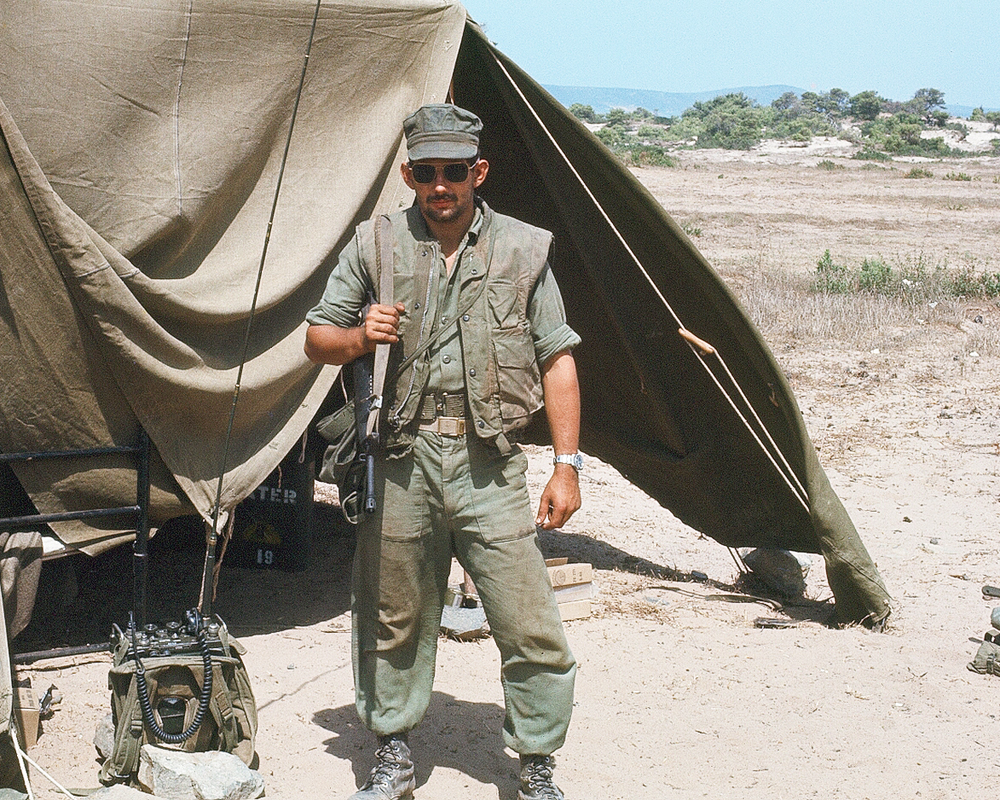
The Marine experience is a unique opportunity for self-development. Take advantage of it. You have joined the worlds premier fighting force. The Corps will test you as you have never been tested before. Your mission is to rise to that occasion and live up the Corps standards of excellence. If you do that you will become a stronger individual capable of accomplishing any mission whether it be in the service or civilian life. If you leave the Marines at the end of your service you can use that experience as a springboard to a successful life. You’ll know that after having been part of the worlds finest and having done something really tough nothing can stop you from your dreams.
In what ways has togetherweserved.com helped you remember your military service and the friends you served with.

I didn’t leave the service with many friends. However, I would be interested in learning how some of my comrades are doing now. The picture shown here is of LCPL Tom Coblentz of Athens Alabama. Tom was the company driver for on my first med cruise. We were from very different backgrounds, Tom was a Baptist from the rural south and I a Catholic from the northeast, but we became good friends. That’s a big part of the service experience. One that these days fewer and fewer people realize. It has been fun looking back on my Marine days. I hope that other marines come on board and share their stories.
PRESERVE YOUR OWN SERVICE MEMORIES!
Boot Camp, Units, Combat Operations
Join Togetherweserved.com to Create a Legacy of Your Service
U.S. Marine Corps, U.S. Navy, U.S. Air Force, U.S. Army, U.S. Coast Guard
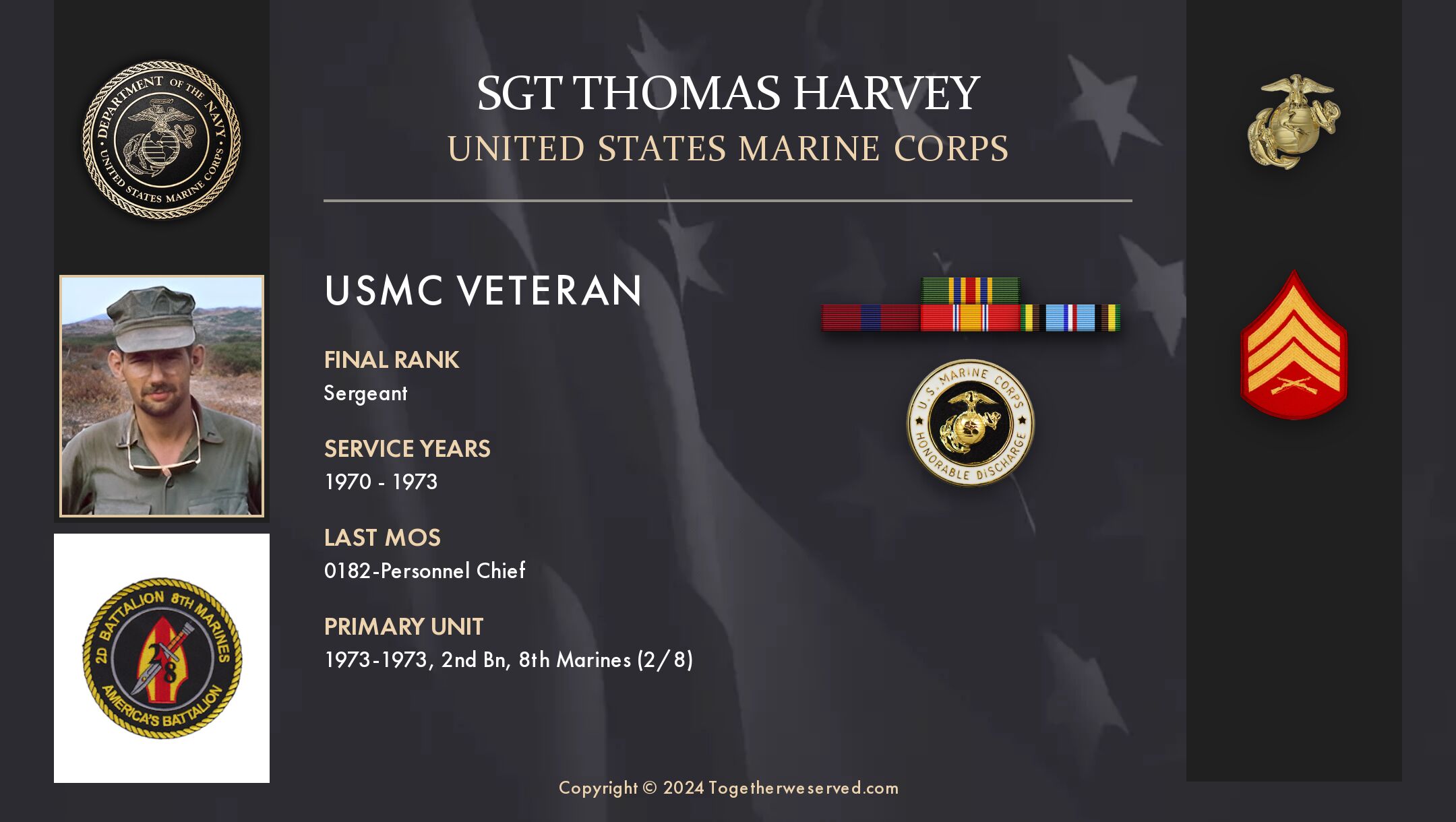
0 Comments